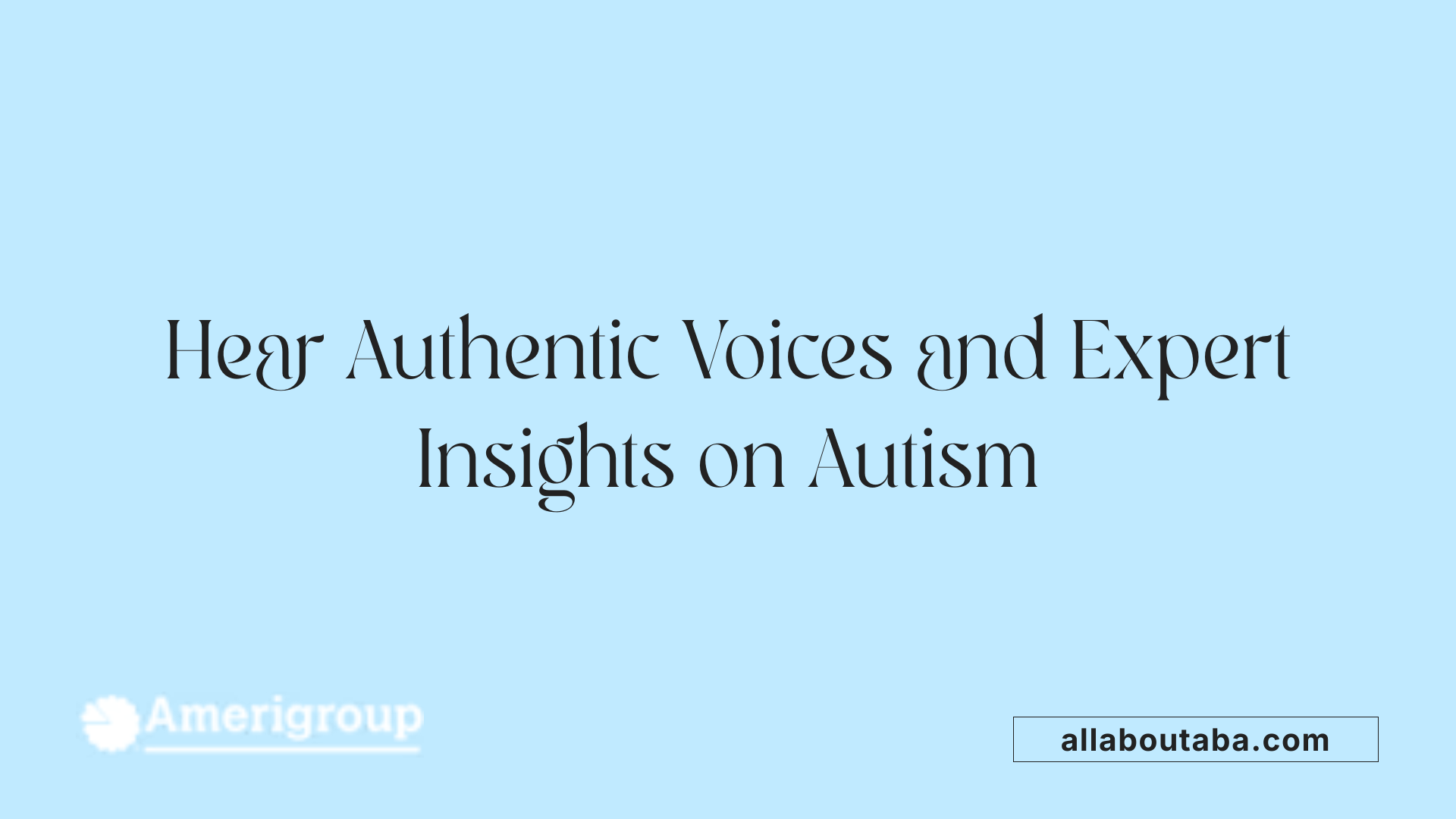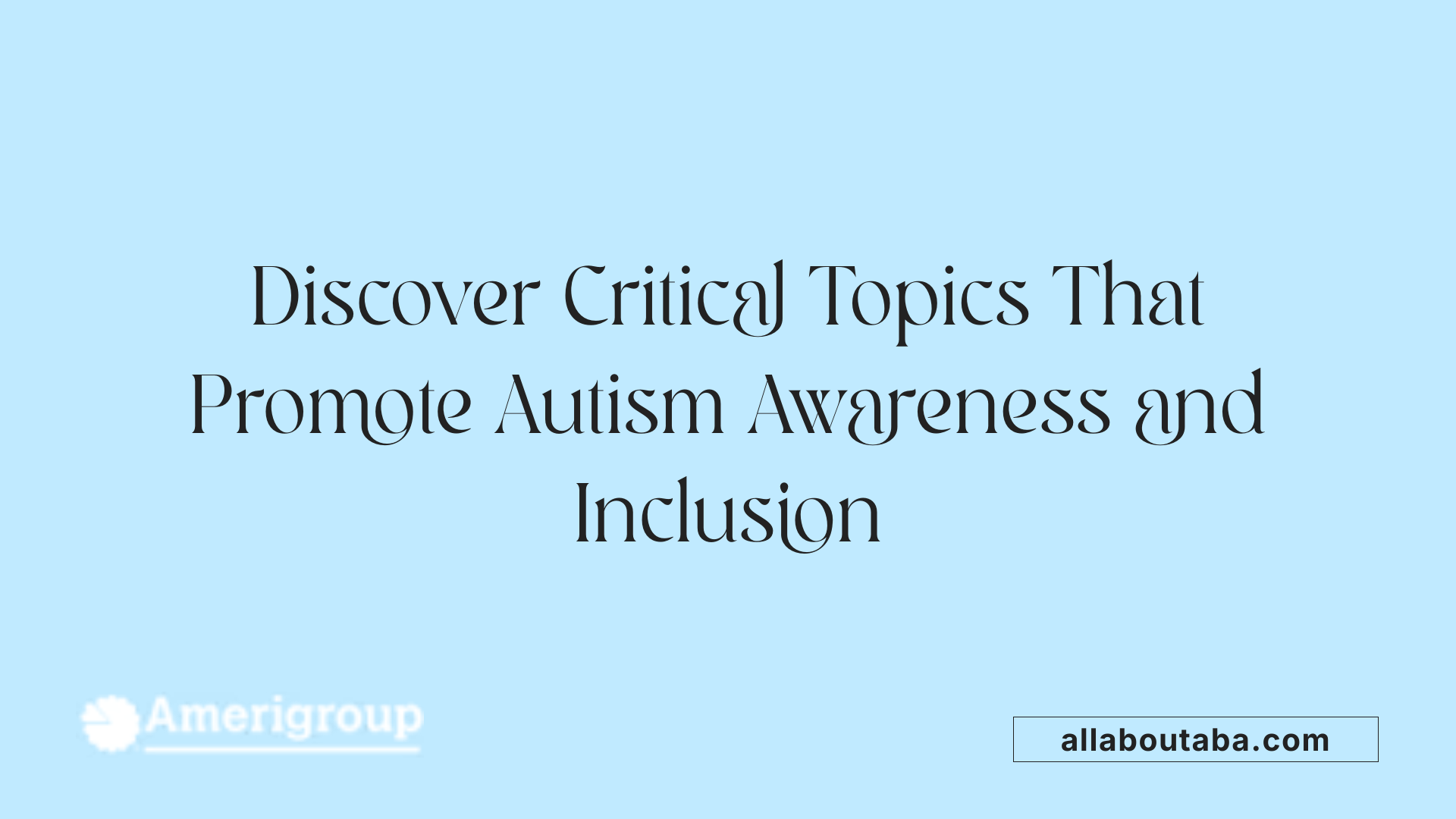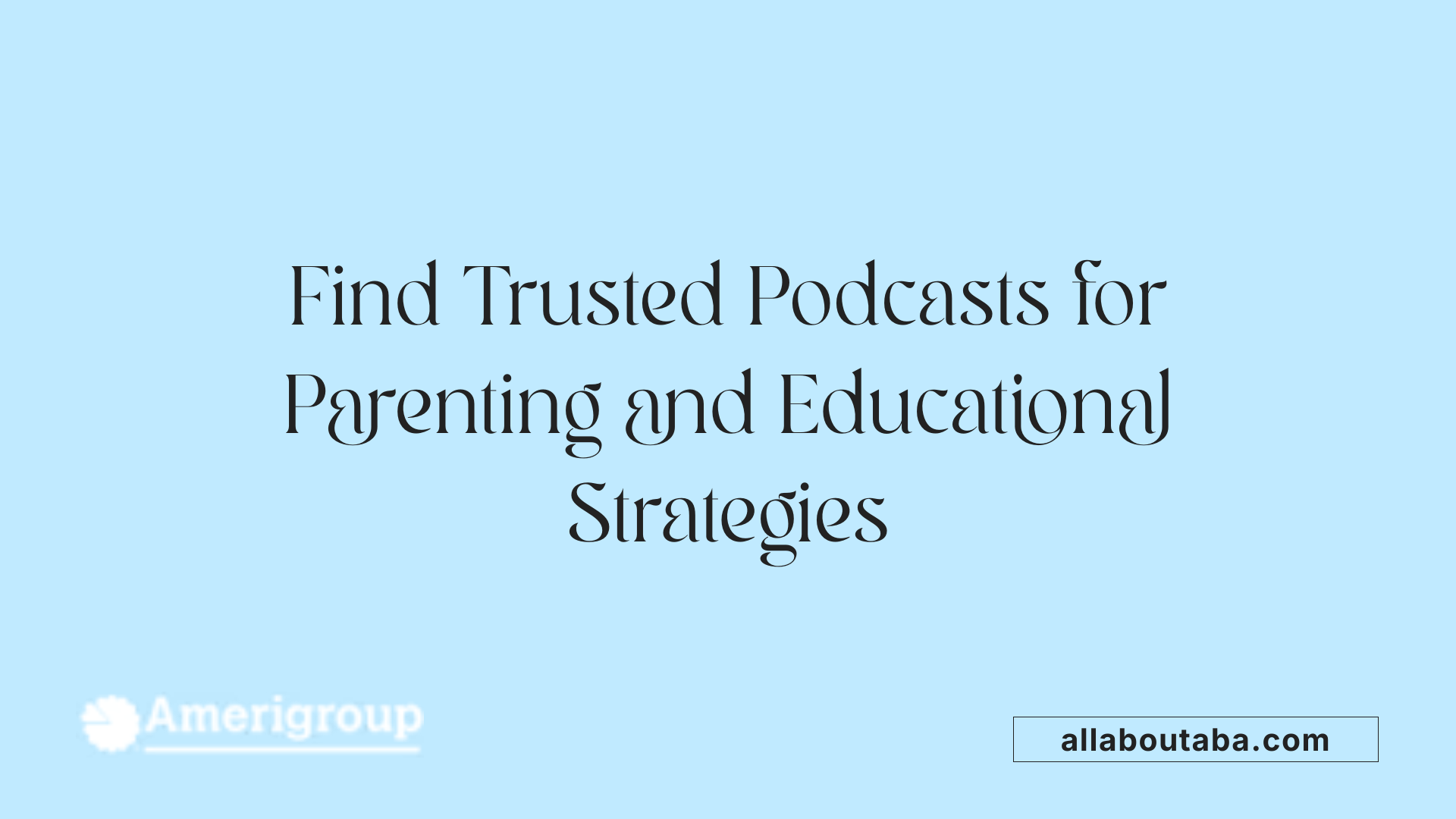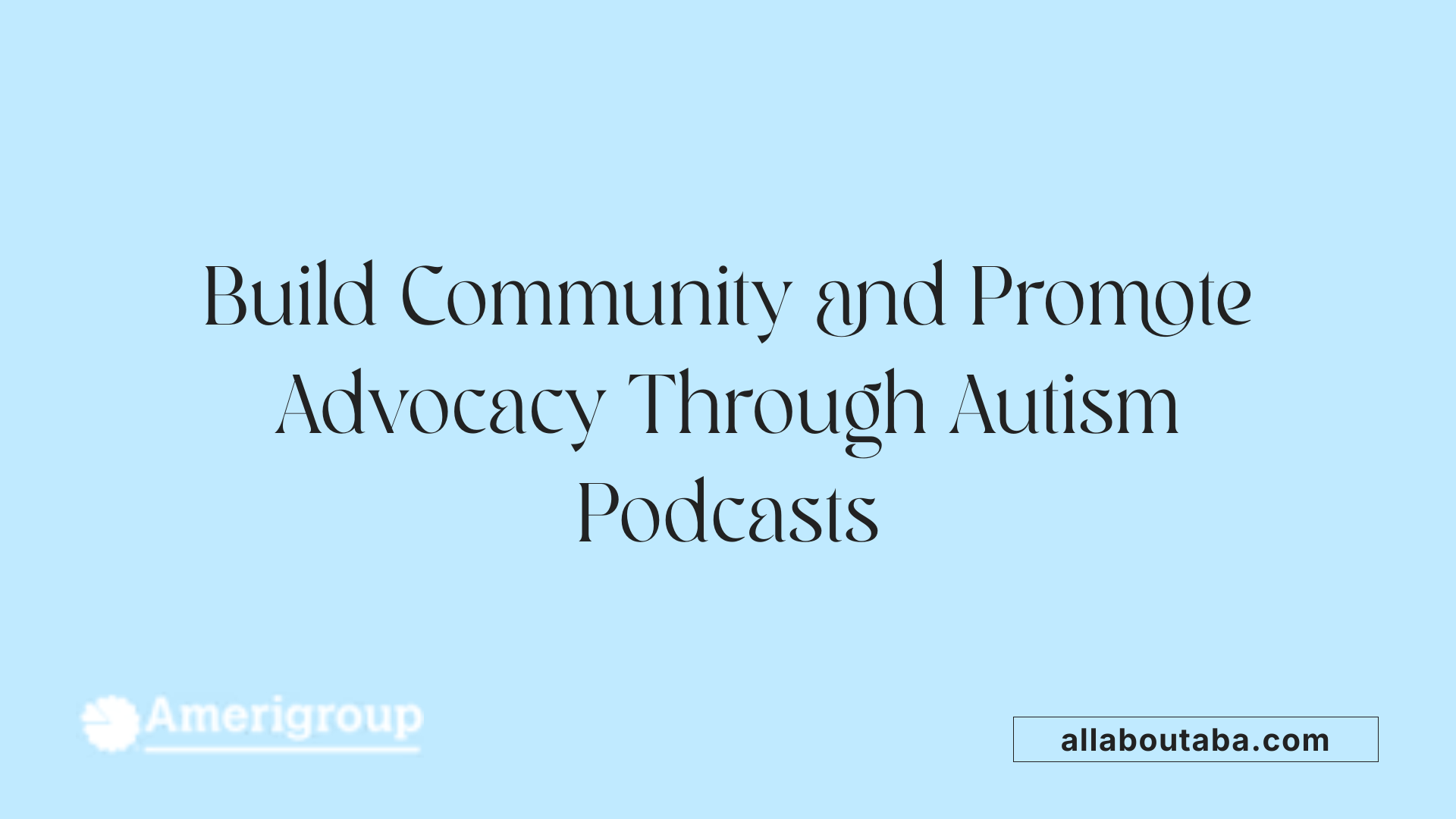Understanding Autism Through Audio Education
Listening to autism podcasts has become an invaluable resource for parents and educators seeking to enhance their understanding, strategies, and support for individuals on the spectrum. These podcasts offer accessible, engaging, and authentic insights into the diverse experiences of autistic individuals and the latest research, making them essential tools for fostering awareness, empathy, and practical intervention skills.
Diverse Perspectives from Autistic Voices and Experts
 Listening to autism podcasts offers a valuable window into the lived experiences of autistic individuals and provides expert insights that challenge misconceptions. Many podcasts feature autistic hosts like Kieran Rose, who share personal stories about masking, burnout, communication, and navigating society’s challenges. These firsthand accounts help parents and educators understand the complexities of autism from those who experience it daily.
Listening to autism podcasts offers a valuable window into the lived experiences of autistic individuals and provides expert insights that challenge misconceptions. Many podcasts feature autistic hosts like Kieran Rose, who share personal stories about masking, burnout, communication, and navigating society’s challenges. These firsthand accounts help parents and educators understand the complexities of autism from those who experience it daily.
In addition to personal stories, expert-led episodes delve into autism myths, neurodiversity, and social models of disability. Guests such as doctors, researchers, and advocates discuss how society can shift towards acceptance rather than just awareness. This approach emphasizes embracing autism as a natural variation and promotes inclusive support.
For parents and teachers, these podcasts serve multiple purposes. They offer practical advice on communication techniques, behavioral strategies, and managing sensory overload. They also cover emotional topics like grief, advocacy, and community building, which resonate deeply with families facing similar journeys. Notable podcasts like 'Moms Talk Autism' gather experiences from parents navigating school, therapies, and social challenges, providing both comfort and guidance.
Understanding issues like masking — where autistic individuals hide their true selves to fit societal expectations — and burnout, which results from excessive effort to conform, is crucial. Podcasts frequently address these topics, highlighting the importance of acceptance and providing strategies to support mental well-being. Featuring voices from within the autism community helps dispel stereotypes and fosters a culture of empathy.
To encapsulate, autism podcasts featuring autistic voices and expert discussions enrich understanding, support emotional well-being, and promote informed advocacy. They serve as accessible tools for parents and educators eager to learn, connect, and better support the unique needs of autistic individuals.
| Podcast Name | Focus Area | Notable Guests & Topics |
|---|---|---|
| 'Turn Autism Around' | Communication, early signs, routines | Dr. Mary Barbera, behavioral strategies |
| 'Joyriding in Autismland' | Personal stories, community, humor | Parent hosts sharing experiences |
| 'All Autism Talk' | Autism research, support resources | Temple Grandin, Wendy Chung, early identification |
| 'Moms Talk Autism' | Parenting, advocacy, social issues | Parent advocates, experts discussing therapies |
| 'Autism Spectrum Radio' | Recent research, treatment updates | Guest clinicians, research summaries |
Through these offerings, autism podcasts serve as bridges connecting families, educators, and professionals, fostering an environment of understanding, compassion, and informed action.
Key Topics Explored to Foster Understanding and Acceptance

What topics are commonly discussed in autism podcasts to promote understanding and awareness?
Autism podcasts serve as valuable platforms for education and community building. They often delve into a range of topics that help demystify autism and foster greater acceptance.
One primary subject is the diagnosis process and early signs of autism. Podcasts like 'Turn Autism Around' provide insights into early developmental indicators, routines, and interventions essential for supporting autistic children. They also discuss practical strategies for improving communication and managing sensory processing challenges.
Interventions and educational strategies are frequently explored. Experts such as Dr. Mary Barbera share evidence-based approaches to develop social skills, reduce harmful behaviors, and support learning through tailored therapies. These discussions aim to equip parents and educators with actionable information.
Personal stories and community experiences are central to many episodes. Shows like 'Joyriding in Autismland' feature parents sharing humorous and heartfelt experiences, emphasizing shared journeys and community support. 'Moms Talk Autism' hosts parents discussing daily challenges, advocacy, and navigating school systems, creating a sense of connection and understanding.
Addressing myths and misconceptions about autism is also a recurring theme. Podcasts highlight the importance of shifting from mere awareness to acceptance, emphasizing neurodiversity and the social model of disability. Influential voices, including autistic professionals like Temple Grandin, challenge stereotypes and promote authentic representation.
Many podcasts feature interviews with researchers, advocates, and autistic individuals, offering diverse perspectives. Topics such as autism and mental health, cultural considerations, and recent research developments expand knowledge and foster empathy.
Below is a summary table of common podcast themes:
| Topic | Focus Area | Notable Podcasts/Guests |
|---|---|---|
| Diagnosis and Early Signs | Recognizing developmental milestones and early intervention | 'Turn Autism Around', Dr. Mary Barbera |
| Interventions and Support | Educational methods, behavioral therapy, communication | 'Autism Spectrum Radio', 'The Autism Helper' |
| Sensory and Communication | Sensory processing, managing communication challenges | 'All Things Sensory', experts in occupational therapy |
| Personal and Community Stories | Sharing lived experiences, fostering inclusion | 'Joyriding in Autismland', 'Moms Talk Autism' |
| Myths, Misunderstandings | Dispel misconceptions, promote neurodiversity | 'All Autism Talk', advocates like Temple Grandin |
By covering these topics, autism podcasts aim to increase awareness, normalize diverse experiences, and promote a more inclusive understanding of autism across society.
Curated Resources for Easy Access in Educational Contexts
For educators and parents seeking reliable sources of autism-related information, dedicated autism support websites are invaluable. They often curate comprehensive lists of autism podcasts hosted by autistic individuals and experts, providing authentic insights into the experience and challenges of autism. These websites serve as centralized hubs for accessing content on topics like masking, burnout, communication strategies, and neurodiversity.
A wide range of podcasts are featured, each targeting specific audiences such as caregivers, educators, or autistic individuals. Notable examples include 'Turn Autism Around,' hosted by Dr. Mary Barbera, which offers practical advice on communication and early signs of autism, and 'Mom’s Talk Autism,' hosted by mothers sharing personal parenting journeys and expert interviews. Others, such as 'All Autism Talk' and 'Autism Spectrum Radio,' highlight community stories, recent research, and treatment options.
These platforms typically provide direct links to episodes available on mainstream podcast services like Spotify, Apple Podcasts, and Audible. This ease of access allows educators and caregivers to incorporate these resources into their teaching or support routines effectively.
Below is an overview of some popular autism podcasts and platforms:
| Podcast Name | Focus Area | Hosts & Notable Guests | Platform Links |
|---|---|---|---|
| Turn Autism Around | Practical strategies & early signs | Dr. Mary Barbera | Spotify, Apple Podcasts |
| Moms Talk Autism | Parenting & advocacy | Mothers of autistic children | Mainstream podcast apps |
| All Autism Talk | Community & recent research | Various expert guests | Apple Podcasts, Spotify |
| The Autism Helper | Education & skill development | Therapy professionals | Apple Podcasts, Spotify |
| Embracing Autism | Personal stories & acceptance | Autism advocates | Major podcast platforms |
Overall, these resources help educators and parents access valuable autism content easily. They support informed teaching, advocacy, and family support efforts, fostering greater understanding and community engagement.
Top-Rated Podcasts for Parental and Educational Support
 For parents and educators seeking reliable sources of information and community connection, several podcasts stand out as valuable resources. These shows provide insights into autism, share personal stories, and offer practical advice on supporting autistic individuals.
For parents and educators seeking reliable sources of information and community connection, several podcasts stand out as valuable resources. These shows provide insights into autism, share personal stories, and offer practical advice on supporting autistic individuals.
"Turn Autism Around" hosted by Dr. Mary Barbera is highly recommended for its focus on communication development, sensory processing, routines, and early signs of autism. Dr. Barbera's expertise as a nurse and behavior analyst makes her podcasts a practical guide for parents working through diagnosis and intervention.
Another popular podcast is "Mom’s Talk Autism," hosted by four mothers with autistic children. This series shares personal parenting and advocacy stories, addressing challenges like schooling, therapies, social dynamics, and family life. It also features conversations with experts such as Dr. David Amaral on brain donation, raising awareness and supporting research.
"All Autism Talk" serves as a bridge within the autism community, offering a wide range of perspectives, including those from autistic individuals and professionals. It covers topics like neurodiversity, autism myths, and social models of disability, aligning with current advocacy efforts.
Additionally, "Autism Spectrum Radio" provides weekly updates on the latest research, treatments, and guest expert insights. Its focus on evidence-based information makes it a trusted resource for educators and parents.
Many of these podcasts are available on mainstream platforms like Spotify, Apple Podcasts, and Audible, ensuring easy access to a wealth of knowledge and community support. Other notable shows include "The Autism Helper Podcast," "Embracing Autism," and "Let’s Talk Autism," featuring diverse topics from behavior management to social skills and neurodiversity.
Below is a summary of some leading autism podcasts:
| Podcast Name | Focus Area | Hosts/Experts Involved | Audience |
|---|---|---|---|
| Turn Autism Around | Communication, early signs, routines | Dr. Mary Barbera | Parents, educators |
| Mom’s Talk Autism | Parenting, advocacy, community stories | Mothers with autistic children | Parents |
| All Autism Talk | Community, research, neurodiversity | Various autism professionals and individuals | General autism community |
| Autism Spectrum Radio | Research updates, treatments, expert interviews | Various healthcare professionals | Parents, clinicians |
This broad range of podcasts ensures that parents and educators can find support, advice, and community engagement tailored to their needs, fostering better understanding and advocacy for people with autism.
The Role of Podcasts in Supporting Community and Advocacy

Building community through storytelling
Autism podcasts play a significant role in creating a sense of community among parents, educators, and individuals with autism. By sharing personal experiences, these podcasts foster connections and understanding. For example, 'Joyriding in Autismland' highlights humorous and heartfelt stories from parents, emphasizing shared community experiences that help listeners feel less isolated.
Advocacy through authentic communication
Many podcasts prioritize authentic voices, including autistic presenters like Kieran Rose. These hosts challenge stereotypes and myths about autism by openly discussing topics such as masking, burnout, and communication. Shows like 'All Autism Talk' connect the community with experts and individuals with autism, promoting acceptance and advocacy. Such genuine conversations help shift societal perceptions and encourage greater inclusivity.
Impact of podcasts on awareness and societal change
The influence of autism podcasts extends beyond individual listeners. They contribute to raising awareness about neurodiversity and the social model of disability, encouraging society to view autism through a strengths-based lens. By disseminating current research, practical advice, and advocacy messages, these podcasts inspire societal change—making environments more supportive and understanding.
How listening to autism podcasts supports parents and educators?
Listening to autism podcasts supports parents and educators by providing convenient access to practical strategies, current research, and personal stories that deepen understanding of autism. These podcasts offer emotional support, reduce feelings of isolation, and inspire hope through shared experiences and success stories. They serve as valuable resources for learning techniques such as behavioral interventions, communication strategies, and coping mechanisms that can be applied in daily life and educational settings. Additionally, autism podcasts featuring autistic voices promote authenticity, challenge stereotypes, and enhance awareness of issues like burnout, masking, and neurodiversity. Overall, they empower parents and educators with knowledge, empathy, and actionable tools to better support children and young adults with autism.
Future Trends and Recommendations for Autism Podcast Content

Emerging themes and topics
The future of autism podcasts is likely to explore increasingly diverse themes that reflect the evolving understanding of neurodiversity and inclusion. Topics such as sensory processing experiences, intersectionality within the autism community, and the impact of technology and virtual support are expected to become prominent. Additionally, there will be a focus on mental health, self-advocacy, and community building, providing listeners with nuanced insights into living with autism.
Innovative formats and delivery methods
Innovative podcast formats are expected to enhance engagement and accessibility. These may include interactive episodes, live Q&A sessions with experts, and multimedia content that incorporates videos and transcripts. As technology advances, enriched audio experiences such as 3D sound or personalized content tailored to individual experiences could become more common, making it easier for diverse audiences to connect.
Enhancing accessibility and inclusivity
Future podcasts will likely prioritize accessibility by offering transcripts, sign language interpretation, and content tailored to various languages and literacy levels. This will help reach broader audiences, including non-verbal individuals and those with sensory sensitivities. Involving autistic creators and community members in content creation will foster authentic representation and ensure the material resonates with diverse experiences.
Collaborations with professionals and autistic individuals
Collaborative efforts between healthcare professionals, educators, and autistic individuals will continue to grow. These partnerships can generate evidence-based content, promote authentic storytelling, and address community needs. Such collaborations will contribute to destigmatizing autism, dispelling myths, and providing practical, relatable advice to caregivers, educators, and individuals on the spectrum.
Where can I find curated lists of autism-related podcasts for caregivers?
You can find curated lists of autism-related podcasts for caregivers on dedicated autism support websites and resource pages. Many of these sites feature top autism podcasts tailored to parents, caregivers, and individuals on the spectrum, highlighting shows like 'Turn Autism Around,' 'Joyriding in Autismland,' and 'All Autism Talk.' Additionally, podcast platforms often have curated sections or categories focusing on autism topics, making it easier to discover relevant content. Some websites also compile comprehensive lists of podcasts hosted by autistic individuals or organizations committed to autism advocacy, providing valuable insights and support. These resources serve as useful tools for caregivers seeking practical advice, personal stories, and community connection, always supplementing but not replacing professional guidance.
Empowering Support Through Knowledge and Community
In conclusion, autism podcasts serve as potent tools for bridging gaps in understanding, providing practical strategies, and building a supportive community for parents and educators. By featuring authentic voices, expert insights, and diverse perspectives, these podcasts promote acceptance, dispel myths, and inspire advocacy efforts. As the podcast landscape continues to evolve with innovative content, enhanced accessibility, and collaborative efforts, they will remain essential in empowering families and educators to foster inclusive and supportive environments for individuals on the spectrum. Tapping into these rich resources will help cultivate a more informed, empathetic, and proactive approach to autism support.
References
- Podcasts on Autism
- Top Autism Podcasts for Parents
- Moms Talk Autism Podcast
- Top Podcasts on Autism
- Best Autism & ASD Podcasts + Autism Podcasts for Parents
- The 7 Best Autism Podcasts For Parents And Educators
- Autism Podcasts That Parents Should Follow
- Podcasts on Autism
- Top Autism Podcasts for Parents
- Top Podcasts on Autism







